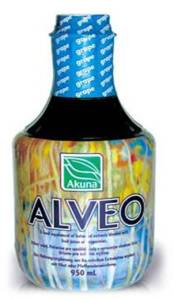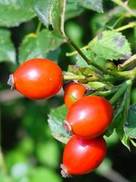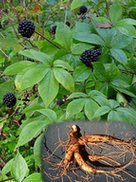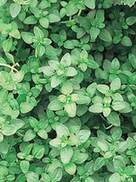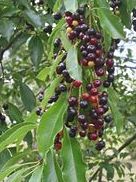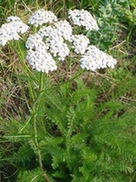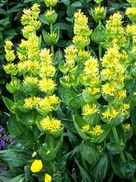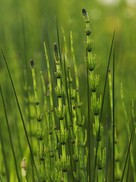
HORSETAIL
Equisetum arvense
Horsetail is said to be one of the oldest recorded plants on earth, discovered approximately 600 million years ago. It is rich in the trace element silica which aids in the absorption of calcium, and is a basic element in the growth and repair of bone and tissue (strengthening bones, hair, nails and teeth). Herbalists claim it is useful in the repair and regeneration of the damaged connective tissue disorders. Another long standing use of horsetail has been as mild treatment in the prevention and treatment of kidney stone formation, bacterial and inflammatory disorders of the lower urinary tract, and as a diuretic. Horsetail has been a traditional treatment for allergies, pulmonary tuberculosis, cystitis, kidney stones, water retention, fevers, eye diseases, gout and rheumatism.
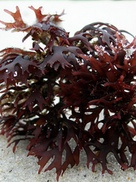
IRISH MOSS
Chondrus crispus
Harvested from the water off the European coast, Irish moss is actually a seaweed. Rich in proteins, iodine and other substances, many herbalists also considers it is excellent “nutritive tonic”, and traditionally it has been prescribed for ulcers, dysentery (infectious diarrhea) and the other gastrointestinal disorders. Contemporary herbalists consider it a valuable soothing agent (demulcent) for dry coughs, bronchitis, tuberculosis and other upper respiratory tract ailments. It is also thought to help in the treatment and alleviation of peptic and duodenal ulcers. Considered to have anti-inflammatory, immunosuppressive, blood-pressure lowering, and other potentially beneficial properties, Irish moss is also thought to have healing properties beneficial in treating ulcers and other problems relating to the digestive system.
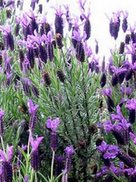
LAVENDER
Lavandula angustifolia
In an age of extremes lavender is essentially able to produce a balancing and harmonizing effect, by having a pronounced regulating effect on the nervous system. Stress has long been known to deplete the immune system, and can be the cause, or the precipitating agent, for all types of illness and disease. With this in mind, lavender is thought to have a restorative effect in cases of a weakened nervous system and have a calming effect on those prone to be stressed or agitated. For years herbalists have used the calming effects of lavender to treat nervousness, anxiety, worry and depression. Lavender is used as a symptomatic treatment of stress-related conditions. It has been used for insomnia, headaches, and immune as well as digestive problems.
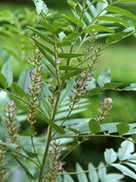
LICORICE
Glycyrrhiza glabra
Long ago, in China, licorice acquired the name of “The Great Detoxifier”. They believed that continuous consumption of licorice root would help to rid the body of poisons and could contribute to the body’s blood building efforts. It has since been used in many Chinese prescriptions treating dry coughs and lung disorders, asthma, sore throats, laryngitis, ulcers, as well as inflammation of the urinary and intestinal tracts. It is sad that licorice root increases vital energy, and that it is able to strengthen digestive and metabolic function. It is believed that licorice root “harmonizes” the ingredients in an herbal formulation and eliminates any harshness, thus promoting smooth activity of the herbs. Licorice is useful in the treatment of peptic ulcers, abdominal colic, stomach inflammation, colitis, and has been used as an expectorant in cases of bronchitis.
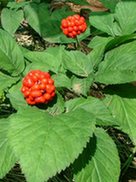
KOREAN GINSENG
Panax ginseng
People have long used ginseng in their health practices, claiming it has the power to balance one’s energy. It appears to have the quality to help regulate and strengthen body functions, improving metabolism, increasing both immune system resistance and respiratory performance. Extracts from this herb have been used to provide a mental stimulant, thought to improve memory and cognitive power, and many claim that with regular use it can often reverse mental deterioration. It can also lessen the effects of menopause. Among its many uses, Panax ginseng is beneficial in treating fatigue, providing increased physical energy, increasing metabolism, fastening recovery from illness and surgery, and empowering its users with an increased alertness and power of concentration, as well as instilling a general sense of well-being and vitality.
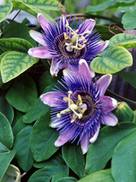
PASSIONFLOWER
Passiflora incarnate
Passionflower has found worldwide acclaim in the reduction of nervous tension, alleviating irritability and anxiety, and lowering blood pressure. It is also used to promote restful sleep. As an antispasmodic it has also been successfully used in the treatment of bronchial asthma. Passionflower has an overall soothing and calming effect over the entire body, offering relief from stress and stress-related headaches and pain. It has been employed in the treatment of muscle cramps, premenstrual tension, and disturbances often associated with menopause.
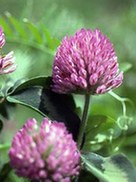
RED CLOVER
Trifolium pratense
Red clover is rich in isoflavones, including genistein and biochanin A (an antioxidant which protects against cells aging). Used as an antibiotic, it has been used in fighting bacterial infections and dealing with kidney and liver diseases. Over the years it has been tried with some success as a tumor and cancer remedy (for breast and prostate cancer in particular). Red clover has also been used as a treatment for skin disorders, such as eczema and psoriasis, as it claims to cleanse the blood. Herbalists also recommend red clover for reducing uncomfortable menopausal symptoms, and improving overall health, including its use as an expectorant to clear chest congestion caused by coughs, colds, asthma and bronchitis.
To be continued…
Until next time…Stay healthy
Katarzyna
Read Full Post »

